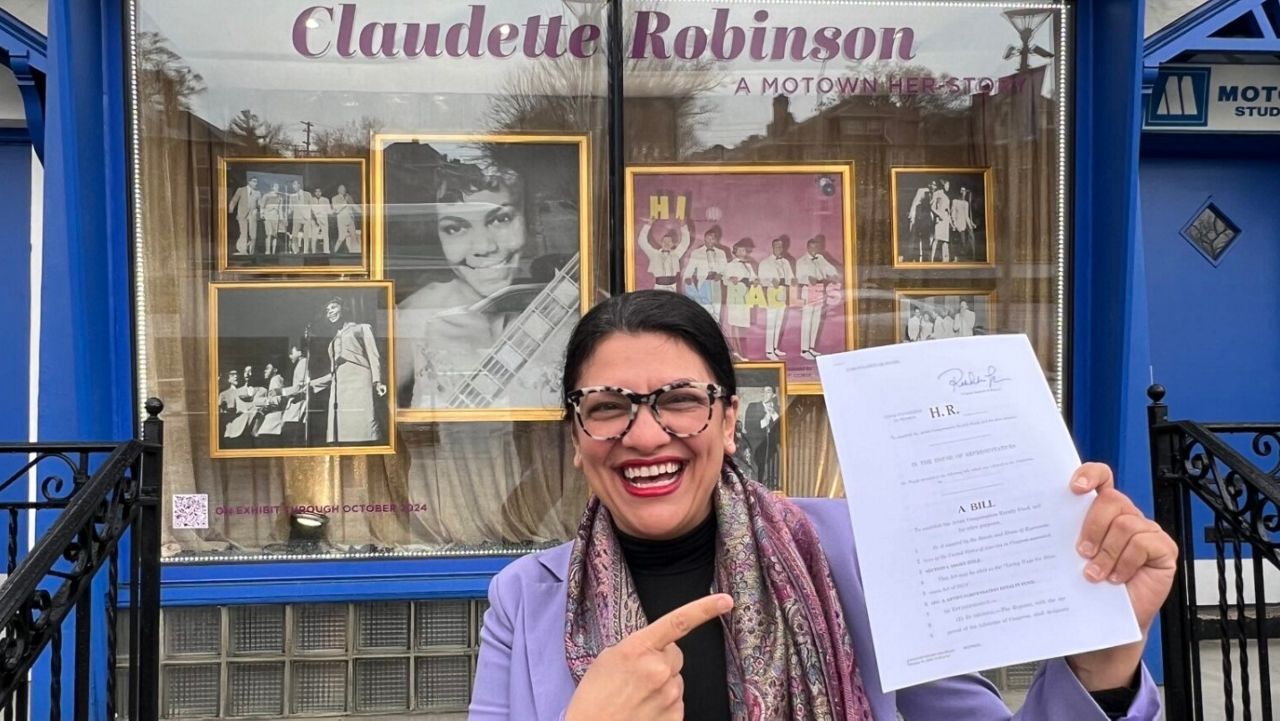Recording artists would receive a new royalty from streaming under new legislation proposed in Congress this week. The Living Wage for Musicians Act would give artists a penny each time their song is played on a streaming service.
“Detroit is one of the music capitals of the world, and our artists here have changed the music industry and our culture in so many incredible ways,” Congresswoman Rashida Tlaib, D-Mich., said in a statement about the bill she co-introduced on Wednesday. “It’s only right that the people who create the music we love get their fair share so that they can thrive, not just survive.”
Tlaib introduced the bill with Rep. Jamaal Bowman, D-N.Y., who founded the Congressional Hip Hop Task Force. The proposed legislation is a follow-up to a resolution Tlaib introduced in 2022 calling on streaming services to compensate musicians more fairly.
One of the world’s largest music streaming platforms — Spotify — has more than 574 million monthly active users globally and pays music rightsholders royalties for recording and publishing. The company said it paid an all-time high of $40 billion to the music industry in 2022, the latest year statistics are available.
Tlaib said musicians receive an average royalty of $0.003 per stream. At that rate, she said artists would need more than 800,000 monthly streams to make the equivalent of a $15-per-hour job.
Spectrum News has reached out to streaming service Spotify for comment.
Created with the United Musicians and Allied Workers, an organization working to improve conditions for all musicians from independents to top-selling artists, the Living Wage for Musicians Act would tax streamers’ non-subscription revenue and add a fee to streaming subscriptions.
The taxed revenues would be collected by a non-profit distribution fund that would pay the artists proportionately to their monthly streams. Those payments would max out once an artist’s streams had reached an as-yet-undetermined threshold.
“The Living Wage for Musiciains Act presents a new, artist-centered solution to make streaming work for the many and not just the few,” UMAW organizer and musician Damon Krukowski said in a statement. “We need to return value to recordings by injecting more money into the system, and we need to pay artists and musicians directly for streaming their work.”



